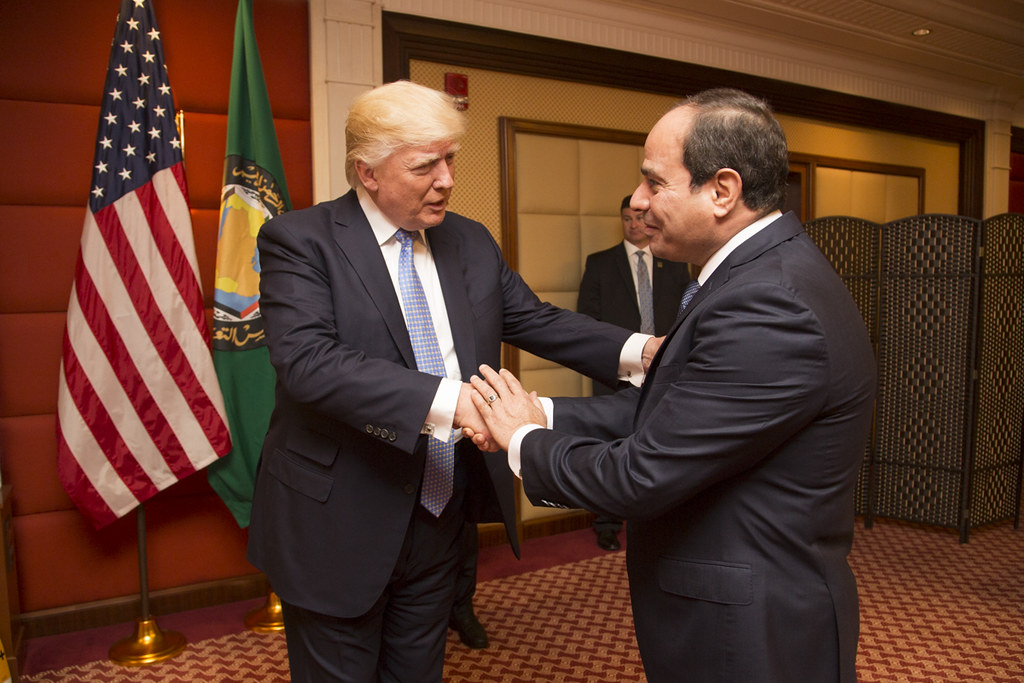IN THE MEDIA
Time for Egypt to be held to account
February 13, 2025 | Oved Lobel

Australian Jewish News – 13 February 2025
If there’s one thing at which Egypt has excelled, it is avoiding international opprobrium for its actions. It was Egypt, after all, that refused to establish a genuinely independent Palestinian entity when it occupied Gaza from 1948 until 1967. It was Egypt that joined Israel in blockading the Strip following Hamas’s takeover in 2007. It is almost never blamed for the former and rarely even mentioned when anyone condemns the latter.
In 2018, Egypt displaced tens of thousands and destroyed Egyptian Rafah in part to prevent smuggling to and from Gaza, with nary a peep from human rights NGOs.
Perhaps nothing has exposed Egyptian impotence as much as October 7 and its aftermath. Gone is the fanciful notion that Egypt has any significant influence over Hamas or Palestinian Islamic Jihad (PIJ).
Despite having established a close operational relationship with Hamas beginning in 2017 as part of Egypt’s counterinsurgency against Islamic State in the Sinai, Egypt had no inkling about October 7. After mediating multiple ceasefires between Palestinian terrorist groups in Gaza and Israel over the preceding decade, Egyptian intelligence, despite its consistent access, was none the wiser.
Egypt’s first response to October 7 was to close the Rafah crossing to Palestinians seeking to flee, as it often does when Hamas or PIJ provoke a conflict with Israel. Instead of agreeing to temporarily house Palestinian civilians in the Sinai, Egyptian President Abdel Fattah El-Sisi resolutely kept them trapped inside a tiny war zone dominated by a terrorist group whose primary strategy is to shield its fighters behind the civilian population and civilian infrastructure.
Cairo’s stance was in keeping with long-standing Arab policy of using the Palestinians as political pawns against Israel. Desperate Palestinians were reportedly forced to pay massive bribes to fixers and smugglers allegedly connected to Egyptian intelligence to even try to escape.
Sisi proudly declared Egypt’s “vehement rejection of the forced displacement of the Palestinians and their transfer to Egyptian lands in Sinai, as this will mark the last gasp in the liquidation of the Palestinian cause, shatter the dream of an independent Palestinian state, and squander the struggle of the Palestinian people and that of the Arab and Islamic peoples over the course of … 75 years”.
About 10 days after October 7, Sisi called for pro-Palestinian protests across Egypt and falsely blamed Israel for the Al-Ahli Hospital parking lot explosion.
When Israel announced it would be attacking Hamas in Rafah last year, Egypt threatened to end its long-standing peace treaty with Israel and subsequently joined in South Africa’s farcical lawfare at the International Court of Justice accusing Israel of genocide.
And then, when Israel did take control of the Gaza side of the Rafah crossing, Egypt refused to allow the resumption of aid until the Palestinians controlled it again. Fearing he might be seen as complicit in Israeli operations, Sisi severely exacerbated the humanitarian crisis in Gaza while receiving none of the blame.
Nor did Egypt’s brutal counterinsurgency measures in the years prior to October 7 have any noticeable impact on cross-border smuggling, as Hamas was able to stockpile a massive arsenal. When the IDF took full control of Rafah, they discovered dozens of tunnels, including some with multiple levels and at least one large enough through which to drive a large vehicle, located within sight of Egyptian guard towers.
The phenomenon of corrupt Egyptian officials and border guards being paid handsomely to look the other way on smuggling tunnels, not to mention those who actively assist Hamas for ideological reasons, has long plagued the area and will continue to do so.
Like all Arab dictators, Sisi lives in perpetual fear of his subjects, and aside from enriching its upper echelons at the expense of the population, the Egyptian military exists primarily to protect the regime against Egyptians rather than to deal with genuine national security issues. This is why Israel had to save the Egyptian army in Sinai starting at least as early as 2016, launching hundreds of airstrikes, providing air support for Egyptian operations and even allegedly assassinating senior Islamic State Sinai military leader Abu Omar al-Ansari in mid-2022.
For the past 16 months, Egypt has been unhelpful at best from both a security and humanitarian point of view, often actively aggravating the situation. How much of this behaviour is accounted for by malevolence, how much by incompetence, and how much by the regime’s terror of the Egyptian population is difficult to measure.
Regardless of the primary cause, Egypt has demonstrated that it is either unable and or unwilling to play a relevant or helpful role in Gaza or with respect to Israeli-Palestinian issues generally. Nor does the Egyptian regime have any incentive to alter its behaviour, as it is almost never criticised for its decisions or their consequences.
US President Donald Trump seems to think Egypt can play a role in housing Palestinians while Gaza is rebuilt, or that it could otherwise contribute to Israeli-Palestinian peace efforts. He needs to think again; that is, unless Egypt’s past impunity is ended.
Oved Lobel is a policy analyst at the Australia/Israel & Jewish Affairs Council.
Tags: Egypt, Gaza, Hamas, Islamic State, Palestinians, Rafah





